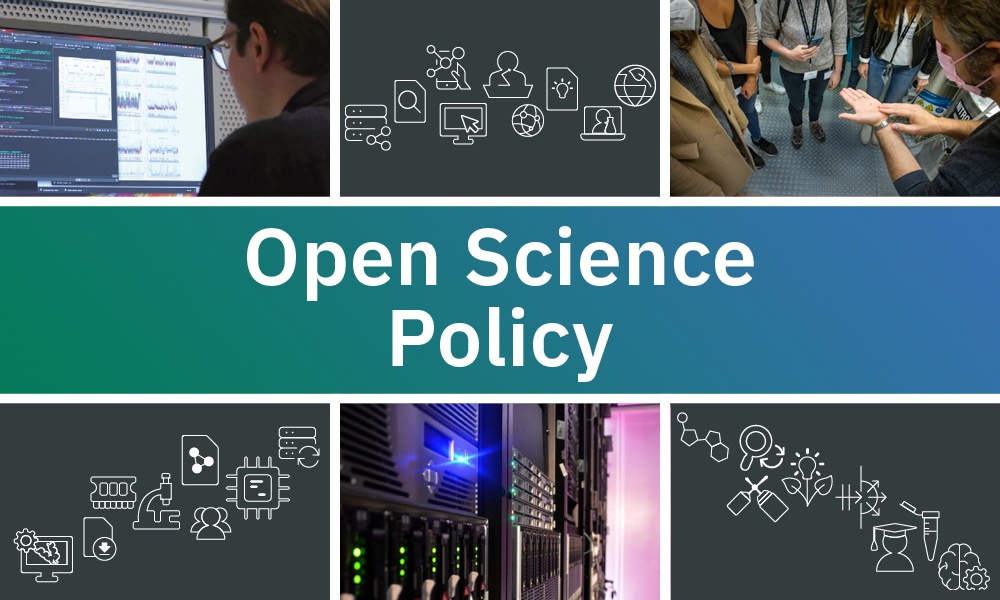
Background and preparation
EMBL has had an Open Access policy for publications since 2015. In 2019, the Director General decided that this policy along with two others (on good scientific practice and publications) should be updated in light of current open science best practices. The DG appointed two chairs (Jo McEntyre and Wolfgang Huber) from the faculty, who set up a pan-EMBL, non-exclusive open science working group (OSWG) that involved diverse stakeholders (e.g. legal, library, IT, compliance officer, policy expert, researchers and services staff from different sites). Two important factors in setting up the working group and building acceptance of the new policy were the high-level engagement and support from the very beginning and the broad and non-exclusive set up of the WG.
At the Kickoff meeting in June 2019, the DG presented the importance of Open Science at EMBL and the mission and scope of the working group was defined. Furthermore, the current state and practices were reviewed, engagement and communication across EMBL were discussed and the operation mode (actions, timelines) were defined. The group met every 2 months typically.
Drafting phase and revisions
The group reviewed the existing policies and decided that a new Open Science Policy that superseded the concepts in the existing ones was the right approach, rather than producing new versions of the existing ones. Best practices and similar approaches from aligned organisations (e.g. funders, research institutes) were also reviewed and followed by general discussions and brainstorming in the OSWG.
In a next step, the OSWG did a survey across all EMBL staff to benchmark current open science related practices (482 respondents) and socialise the idea that there would be a new open science policy. This was important in order to pitch the new open science policy in an inspirational yet achievable way. The survey showed that many good open science practices were already in place and the policy development that followed built on these and aspired to formalise these behaviours more broadly across the organisation.
On this basis a first draft of the policy was created. In this phase, it was very helpful to have a policy expert, Michele Garfinkel, in the WG especially to understand the separation between what should be part of the policy and what should be part of the accompanying guidelines. The point being that the policy should be inspirational, endure and change infrequently, while the implementation guidelines can change more rapidly as processes and support tools change and become available.
The policy draft and survey results were then presented and discussed at numerous EMBL forums including the governance and management structures of the organisation. In multiple iteration steps, concerns and feedback were taken into account and some changes were made. After that, the policy was approved through the usual governance structures. Since the policy was kept as concise as possible, more practical implementation guidelines were needed. These were written by three guideline writing groups, that were sub-groups of the OSWG and focussed on one of the three topics 1. Publications, 2. Data, and 3. Software. Again, the guidelines went through some iterations and were finally approved.
Publication and implementation
In December 2021, the open science policy was published (https://www.embl.org/about/open-science/) together with the guidelines. The publication was announced by the DG and accompanied by broad internal communication through multiple channels and presentations.
An important parallel development was the formation of OS policy support structures. To this end, existing structures (library, archive, records management) were merged and two new open science support positions were created to form the Office for Scientific Information Management (OSIM). OSIM supports the implementation of the policy and serves as the point of contact for all policy related questions. Furthermore, OSIM is responsible for supporting researchers to comply with the policy as well as for monitoring and reporting on progress. The implementation is a work in progress and the aim is to build open science understanding across the organisation, show improvement and increase open science practices rather than expecting immediate 100% compliance.